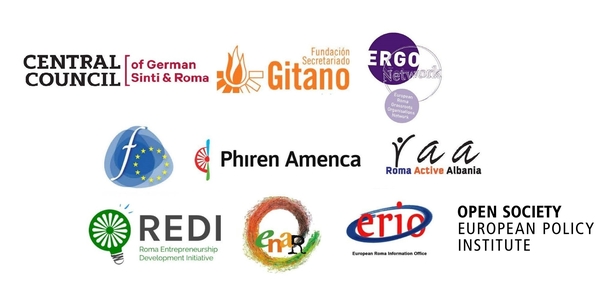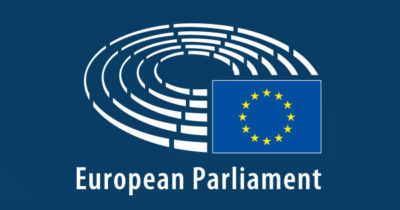PRESS STATEMENT
Overdue action against racism by the European Union
Brussels 23 September 2020: The European Coalition of Roma and pro-Roma organisations welcomes the adoption of an Action Plan against Racism by the European Commission, providing a framework to address structural racism in the EU, including antigypsyism.
The Action Plan recognizes the structural dimension of racism and the specific forms of racism affecting different racialised groups in Europe, including Roma. As such, it could become a key tool to support measures against antigypsyism as outlined in the upcoming Framework for Roma equality and inclusion, including in connection with National Action Plans against Racism to be implemented in all EU Member States. It also provides a more comprehensive approach to all forms of racism in Europe and could help to better address structural and intersectional forms of discrimination affecting Roma people.
Michael Privot from the European Network against Racism: “The fact the action plan recognises the reality of structural racism and provides a comprehensive approach to racism is a major step forward. The plan is also an important tool to build solidarity across racialised groups in the fight against structural racism. We now expect national governments to develop national action plans against racism that are closely connected to Roma inclusion strategies.”
“It is timely that Europe learns from its many failures in protecting the most vulnerable within our societies, including the Roma and Travellers, who remain amongst the most discriminated-against groups in Europe. They continue to suffer from unequal access to services in all areas of life, segregation in education and housing, forced evictions, criminalisation of nomadism, destruction of property and halting sites, police violence, hate speech and bias crimes due to structural and systemic antigypsyism”, stated Gabriela Hrabanova from the ERGO Network.
Isidro Rodríguez, Director of Fundación Secretariado Gitano, explains that: “This EU anti racism plan should be the keystone in mitigating the high rates of poverty and marginalisation of Roma triggered by rooted discrimination. For its implementation, it is essential to have Roma and civil society engaged in each Member State“.
“We are highly concerned with the damaging impact Covid-19 has had on Roma and Travellers communities and the increasing antigypsyist political discourse and police violence in the member states. With this action plan, the EU should set up stricter funding conditionalities and indicators that guarantee fundamental rights protection”, the European Roma and Travellers Forum stated.
Adriatik Hasantari, Director of Roma Active Albania underlined: “We expect that the Enlargement and Neighbourhood countries closely follow this action plan and develop national action plans to combat racism against Roma and protect fundamental rights more effectively.”
“OSEPI welcomes this ambitious initiative from the Commission to combat structural racism across Europe. The action plan includes important steps to provide institutional support for the longstanding work of civil society organisations, along with forthcoming legislation, funding and political commitment to the fight for racial justice. Together with the upcoming EU Framework on Roma equality and inclusion, the action plan could lead the way forward to fight anti-Roma prejudice and all forms of racism, strengthen the equality bodies, and implement equal treatment in the EU member states.” Heather Grabbe, Director of Open Society European Policy Institute.
Despite a number of positive legislative and policy developments in the past decade, many gaps and challenges remain in improving the application of the EU antidiscrimination law and adoption of relevant and useful policies regarding Roma and Travellers throughout EU Member States and Enlargement countries, such as the deeply rooted structural and institutionalised discrimination, the lack of adequate disaggregated data, underreporting of discrimination, lack of trust in authorities, low awareness of rights, a lack of means to access justice and a general lack of political will at national level. At EU level, mechanisms such as infringement proceedings to sanction governments against pervasive discrimination and segregation of Roma children in education have failed to correct the situation.
As Roma and pro-Roma NGOs, we look forward to the adoption of National Action Plans against racism by all EU Member States, Enlargement and Neighbourhood countries in order to effectively address racism against all racialised groups, including by legally recognising various forms of targeted racism, such as antigypsyism, antisemitism, islamophobia and afrophobia.
We also expect that direct links of the Commission Action Plan with all major EU policy developments in the area of equality, non-discrimination and social inclusion of Roma and Travellers are made. Notably, it should be linked to the upcoming Strategic Framework for Roma Equality, Inclusion and Participation, and the recently adopted European Parliament resolution on the implementation of National Roma Integration Strategies, demanding a legislative act for Roma. It is equally important that the situation of Roma in the Enlargement and Neighbourhood countries is not overlooked in the implementation of the Action Plan.
As we witness that changes in the laws and policies are not sufficient to improve the situation on the ground concretely and effectively, we call on the Commission to use a further reaching and more extensive approach and tools to address deep-rooted stereotypes, negative prejudices and antigypsyism against Roma and Travellers in order to enable a more adequate response from state actors, institutions and citizens at large. This would also require a more inclusive and non paternalistic approach by the Commission and its public servants towards civil society in its daily workings and consultation approaches.
Finally, we welcome the promise by the Commission to review its hiring and staffing policies to increase diversity within. We hope that this will lead to a fairer and more adequate representation of ethnic minorities, including Roma, in EU institutions.
Members signatories:
European Roma Grassroots Organisations Network (ERGO Network)
European Network against Racism (ENAR)
European Roma Information Office (ERIO)
European Roma and Travellers Forum (ERTF)
Roma Active Albania (RAA)
Phiren Amenca International Network
Fundación Secretariado Gitano (FSG)
Roma Entrepreneurship Development Initiative (REDI)
Central Council of German Sinti and Roma
Open Society European Policy Institute (OSEPI)
For further information, contact:
Jamen Gabriela Hrabanova, ERGO Network: g.hrabanova@ergonetwork.org, Tel: +32(0)489 97 47 53
 From the 29-30 September, VORAE furthermore organized a Summit on antigypsyism in Prishtina, bringing together important stakeholders from Kosovo and abroad, including ERGO Network Director Gabriela Hrabanova, representatives of UN offices, embassies and other civil society organisations. The summit explored ways to combat antigypsyism in Kosovo and at European level and put a special emphasis on the role of women.
From the 29-30 September, VORAE furthermore organized a Summit on antigypsyism in Prishtina, bringing together important stakeholders from Kosovo and abroad, including ERGO Network Director Gabriela Hrabanova, representatives of UN offices, embassies and other civil society organisations. The summit explored ways to combat antigypsyism in Kosovo and at European level and put a special emphasis on the role of women.




